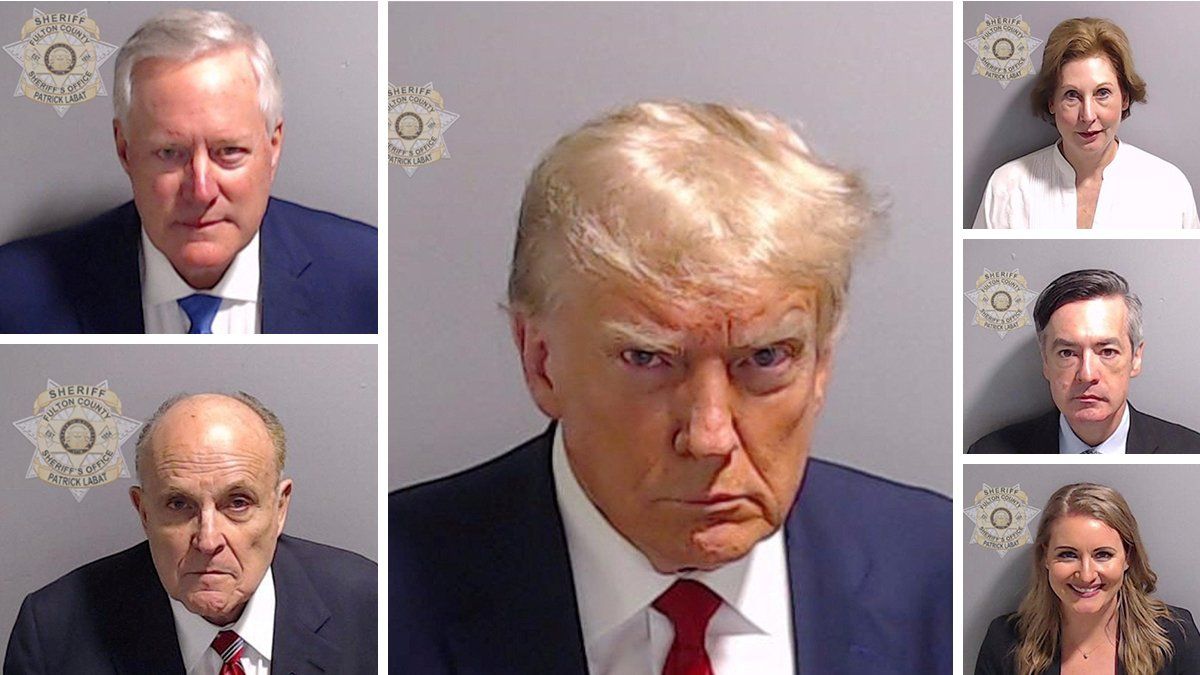Fresh out of Barnard College with a degree in political science, Riley is a writer and reporter for GZERO. When she isn’t writing about global politics, you can find her making GZERO’s crossword puzzles, conducting research on American politics, or persisting in her lifelong quest to learn French. Riley spends her time outside of work grilling, dancing, and wearing many hats (both literally and figuratively).
On Thursday evening, former President Donald Trump surrendered to authorities at Fulton County Jail, in Atlanta, GA. Arriving by motorcade, he was greeted by supporters – many of whom started hours earlier – who held signs referring to the indictments as political persecution. Trump posted his $200,000 bail, presumably putting down the required 10%, and posed for the first-ever presidential mugshot. He then gave a thumbs up to his fans before departing – all in 20 minutes or less.
Some quick background: Trump and 18 others were indicted last week for their alleged involvement in trying to overturn the 2020 election results in Georgia. This is Trump’s fourth indictment, but this one is potentially more serious for three reasons:
- RICO: The prosecutor is crafting a racketeering case. Georgia’s RICO laws allow prosecutors to charge multiple people who commit separate crimes for a common goal. This enables Trump to be held responsible for any crime committed by his co-defendants, who include former New York City Mayor Rudy Giuliant, former White House staffers, and low-level Georgia GOP functionaries.
- It’s unpardonable: A president can pardon their own federal convictions, but state convictions – these are state charges – are outside the presidential purview.
- It will likely be televised: If the trial plays out on television for all of America to see, the unfiltered footage could influence independent voters and moderate Republicans.
What’s coming? The next step is Trump’s arraignment, where he will come before the judge to be formally charged and enter a plea. Prosecutor Fani T. Willis has asked the court to hold the arraignments the week of Sept. 5.
Willis also requested an Oct. 23 trial date. The judge has already approved the request for a speedy trial on that date for Trump’s co-defendant and former lawyer Kenneth Chesebro. Chesebro is accused of being the architect behind the scheme to use fake electors to subvert the election results in Georgia and several other states.
But Trump’s legal team has contested the early date and is calling for his case to be severed from Chesebro. A quick case is the last thing Trump wants because it would interfere with his primary campaign and could stick him with an unpardonable conviction before the election in 2024.






